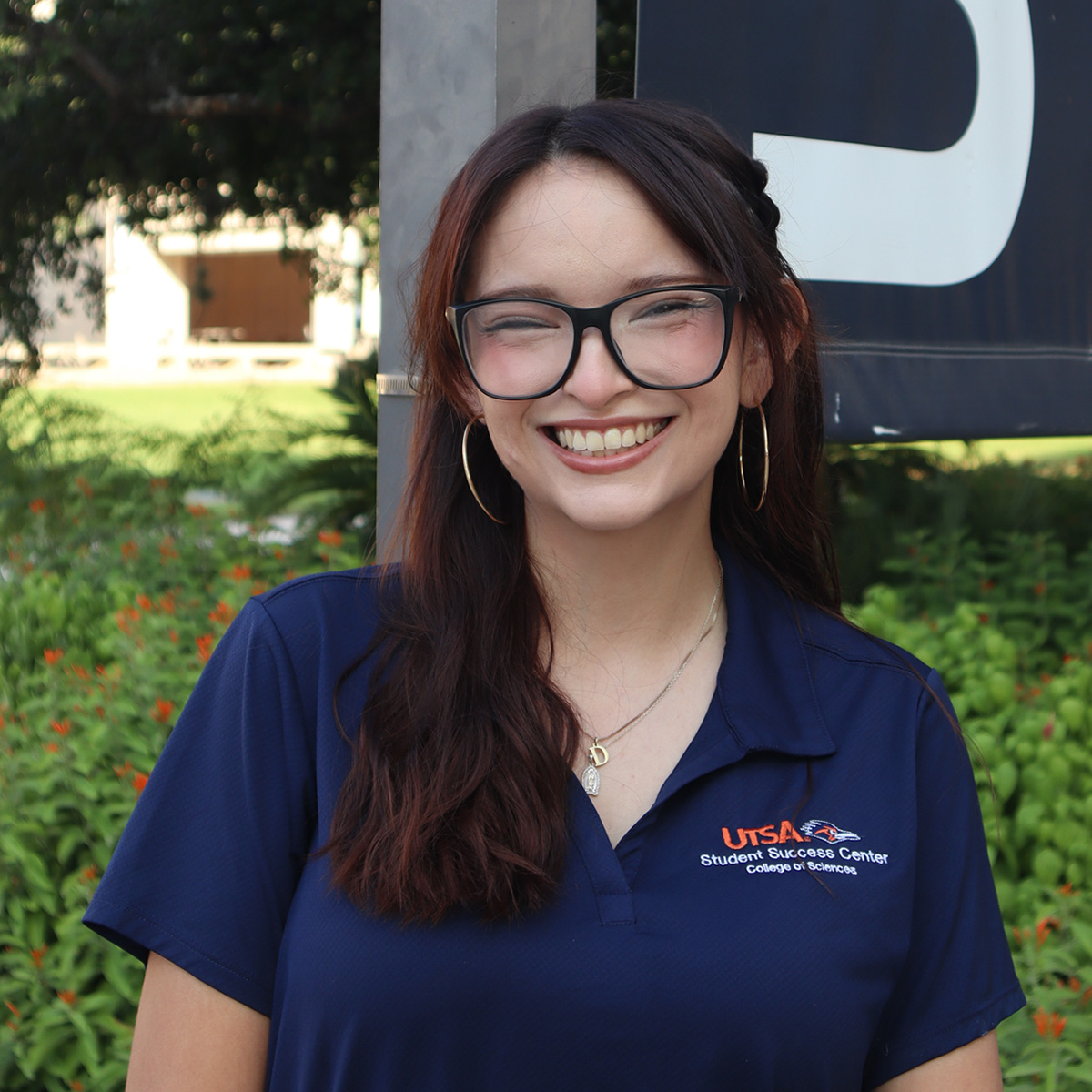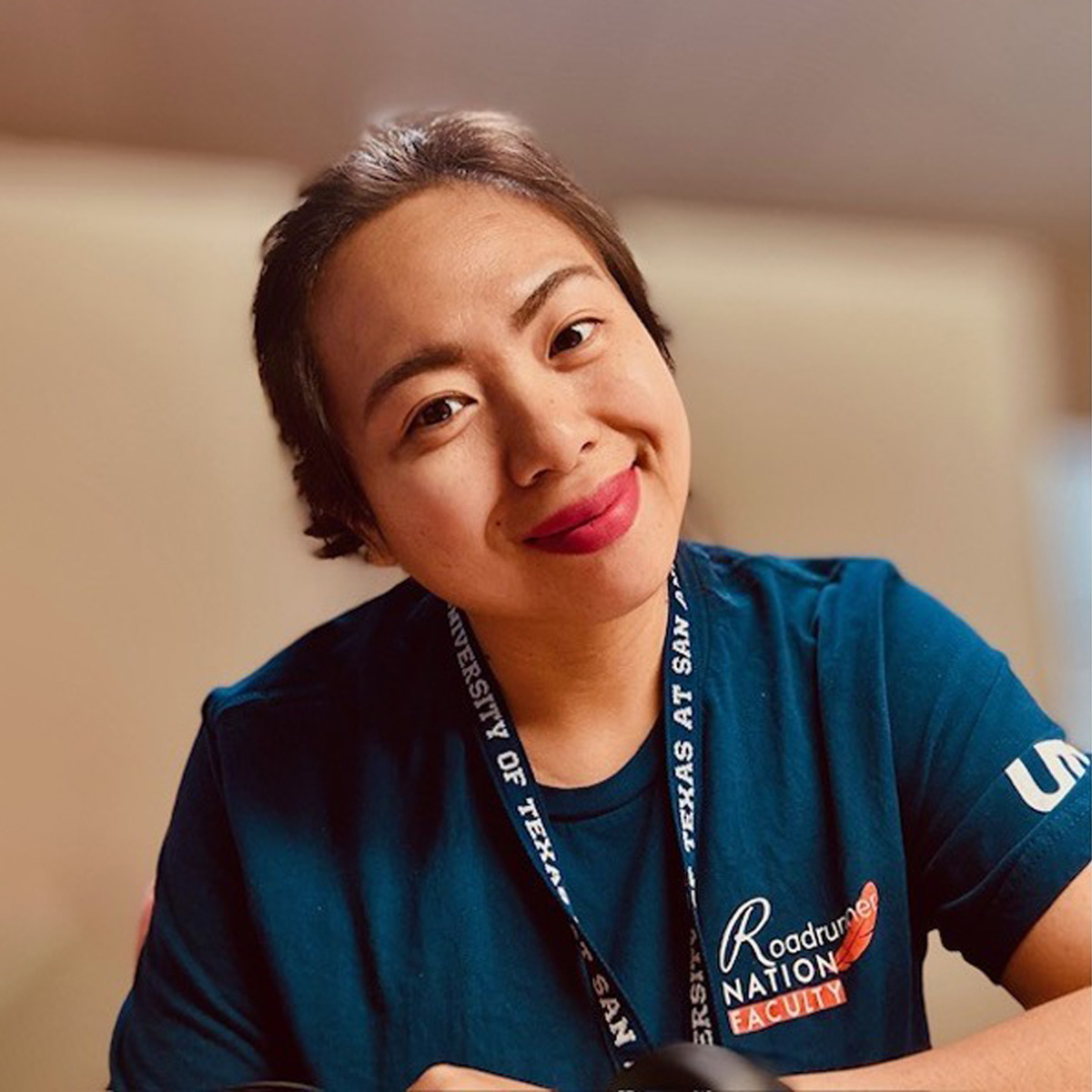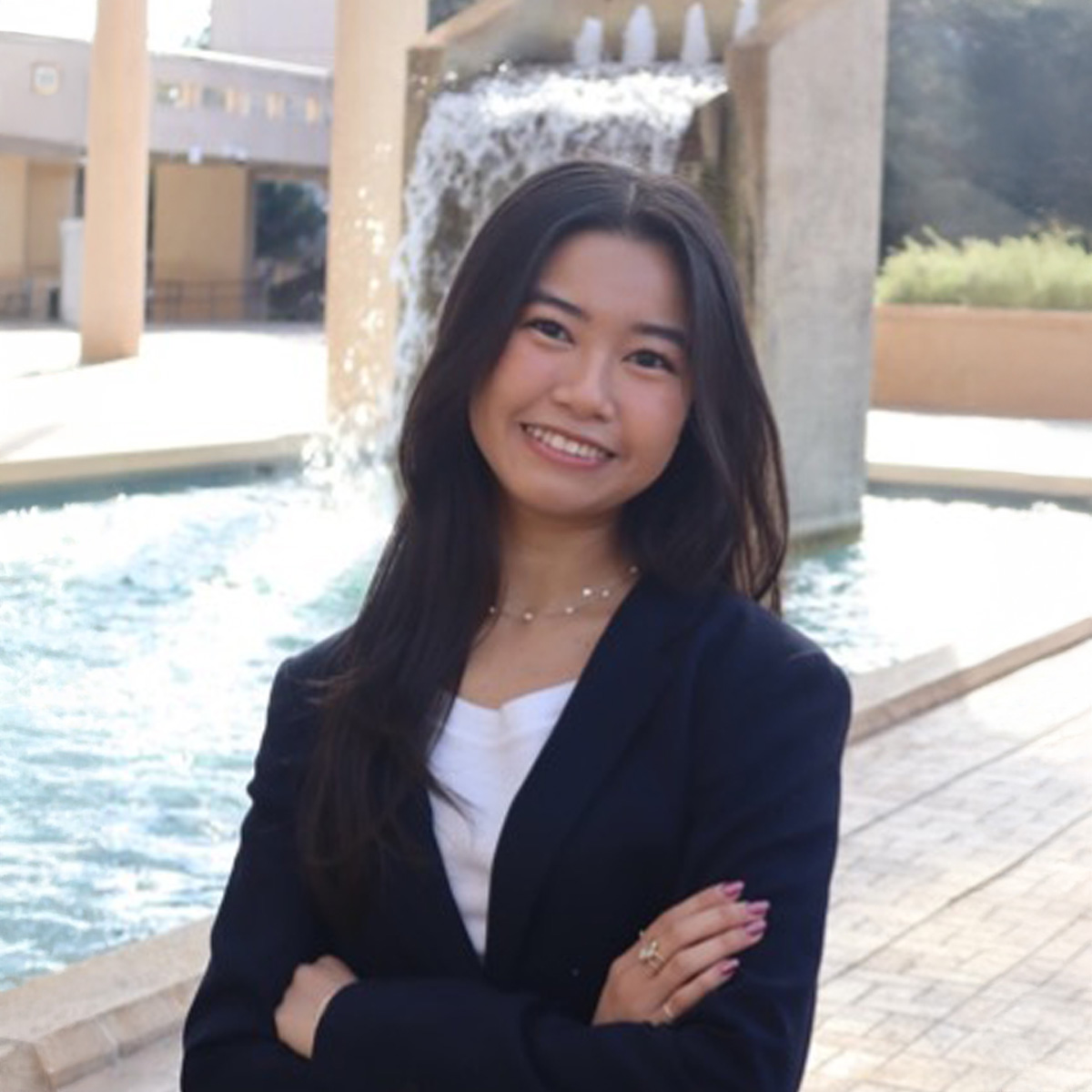Posted on November 4, 2019 by College of Sciences
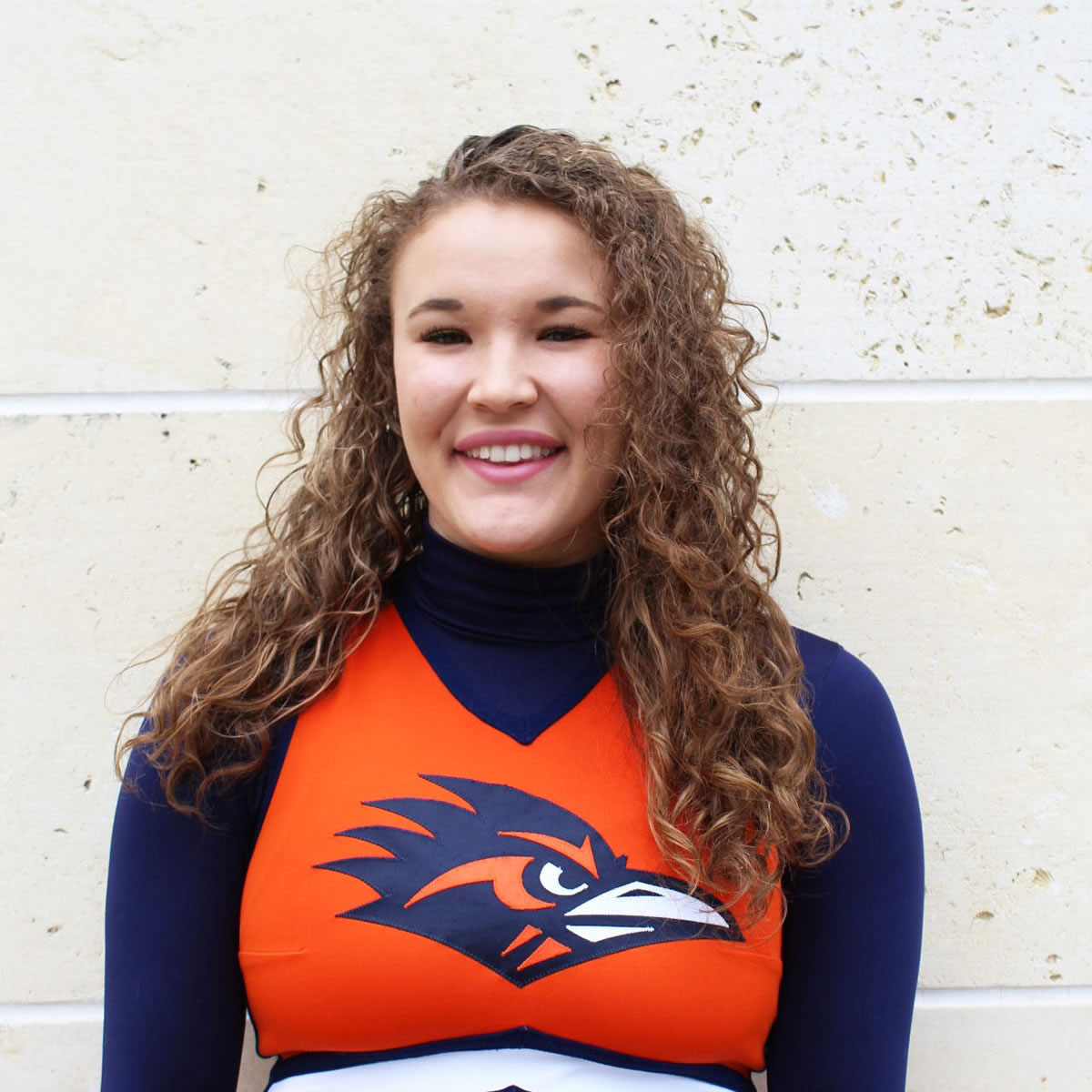
Aleya Shedd, Biology Major
The All-American
By Lauren Moriarty
To capture the highly-coveted All-American title, college cheerleaders must display an elite skillset and pass a rigorous exam. The athletes are judged on everything from showmanship to choreography to technique. Aleya Shedd has earned All-American twice. She is the current Game Day Leader and Recruitment Leader for UTSA's cheerleading team.
Aleya is also a biology major concentrating in neurobiology and minoring in psychology. "My friend always calls me Hannah Montana because I live a double life," she laughs. As a kid, Aleya wanted to be a dance teacher. Science began to interest her in fifth grade, but fully captured her attention in middle school. "I had an incredible teacher who got me super passionate about science," she remembers. "I had a really competitive friend in high school and we always just talked about the brain. I watched all the YouTube videos and TV shows about the brain and thought, how cool is that?"
UTSA was the perfect fit for Aleya because it offered the opportunity to pursue both of her passions. "When I was looking for colleges, I didn't want to be just a student athlete," she says. "I wanted to find a school where I could do neuroscience and either be on a cheer team or track team." She fell in love with the athletic program and the university while attending a UTSA cheer clinic. Once on campus, Aleya learned to balance classes, research, and cheer a unique combination that she believes increases her leadership skills on the team and her confidence in the lab.
Aleya, now a senior, is applying to neuroscience doctoral programs. She is still fascinated with the brain, particularly with the fact that we have so much left to learn. "There are so many ways that the brain dysfunctions," she explains. "When it doesn't work, it inhibits our ability to live and we don't know how that happens or why that happens or how to fix it. As a kid, you assume that we know everything. But as you get older and you keep asking why, the answer is, well we don't know yet. I want to be part of finding that out."
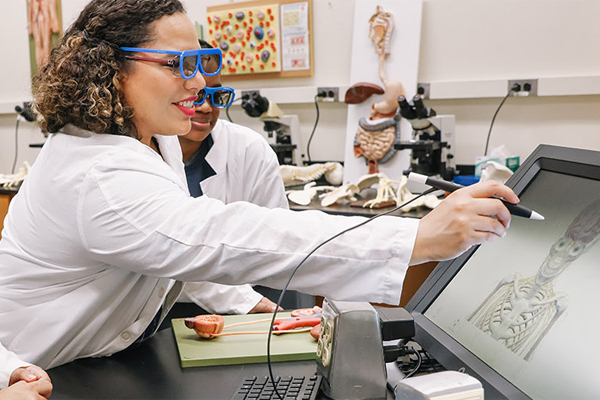
Explore the BHE Department!
Designed for students who want a focus in biological structures and systems from multicellular life to local ecosystems to the entire terrestrial biosphere. Students have access to strong research programs, state-of-the-art resources, and competitive financial support.
Recent BHE Spotlights
View More Spotlights